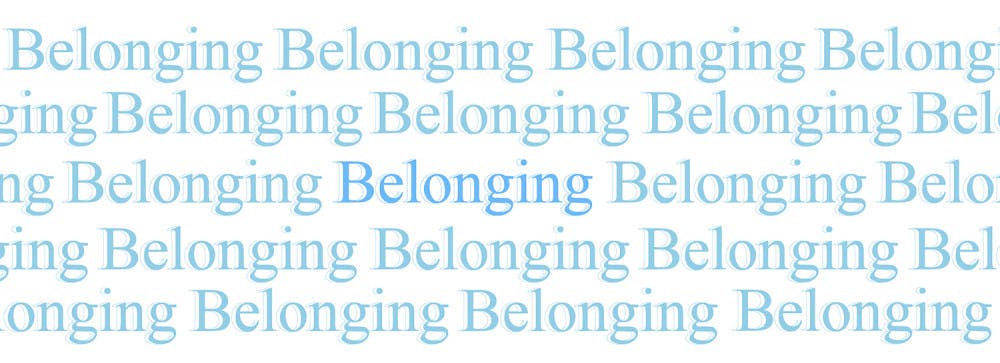More than 200 students answered the question: “What makes you feel othered at Middlebury?” Responses addressed socio-economic status, race and ethnicity, athletics, sexuality and other subjects, shedding light on the ways in which cultures and demographics at the college impact students’ sense of belonging.
Roughly one in three students feel othered at Middlebury.
Highlighting certain demographics paints a clearer picture of who feels othered at the college. Students of color, recipients of financial aid, members of the LGBT community, those who feel their political views diverge from the norm and others whose identities do not match the dominant demographics of the college were more likely to report sentiments of otherness.
Money was the most commonly cited cause of feeling othered at Middlebury. Respondents who indicated feeling othered expressed frustrations with the high level of wealth on campus, the challenges faced by first-generation students and other financial factors. 45% of respondents indicated receiving need-based financial aid. 30% of the written responses explaining why students feel othered at Middlebury attribute these feelings to socioeconomic status.
The influence of wealth on campus culture is not surprising; data from 2017 showed that Middlebury had a greater proportion of students from the top one percent than most other schools in the country. 76% of students came from families with household incomes in the top 20%, according to the 2017 study.
“The tremendous wealth of the students here makes it easy to feel like an outsider,” one respondent wrote.
Another student wrote that their feeling of otherness stems from the fact that they did not come from a privileged background like many of their peers. “I have to work twice as hard to get half of what is given to these people.”
65% of respondents who chose to write about feeling othered indicated receiving financial aid. This is disproportionately large compared to the 45 % of total respondents who said they received financial aid. Many students cited not graduating from private high schools as the reason they feel isolated by wealth culture. Dozens more described not being able to take part in the same activities as wealthier students, which has led to feelings of social exclusion.
Roughly half of those who receive need-based financial aid feel othered at Middlebury, while only 20% of those who do not receive aid feel the same way.
Equally striking is the relationship between race and otherness at Middlebury. Of all racial groups, white students were the only group in which respondents did not overwhelmingly report feelings of otherness.
A campus climate assessment released last week by the Office of Diversity, Equity and Inclusion revealed that only nine percent of students of color believe Middlebury is inclusive to members of their race.

Of the 78 respondents who cited race or ethnicity as an othering factor, more than half described not fitting into the white majority as the primary cause. The other students who mentioned race listed it alongside additional reasons, most commonly socioeconomic status, gender and the many challenges posed by the college’s social and academic environment.
“Middlebury’s whiteness and affluence makes me feel othered,” one student wrote. “De facto segregation everywhere I go,” another said.
“Sometimes I become a token in class. When I speak, I feel I have to do so in a way that validates my intelligence,” a third student said.
A student identifying as Latino wrote, “Sometimes I feel dumb when I forget to code switch to the white man's vernacular and they look at me as if I am speaking a foreign language.”
Another student, who specified being a white-skinned Latino, said, “I fear that my skin will make people identify me solely as a white person … I have had negative comments addressed to me based off my skin color, or people laughing at me because of the way I pronounce my name.”
“I am white but I am international,” one student said. “I don’t fit in with the American majority at all but am often labelled that way because I am white.”
Sexual orientation also factored into feelings of otherness.
“Middlebury is a very heteronormative space,” one respondent who identifies as lesbian said.
Others mentioned feeling isolated from the queer community on campus: one student attributed feelings of otherness to “not fitting stereotypes of the LGBTQ+ community.”
The SGA’s Thirteen Proposals for Community Healing, developed by the student body and sent to the administration following the cancellation of Legutko’s lecture, aim to enhance students’ say in administrative decisions and expand inclusive spaces on campus.
Students who do not identify as cisgender overwhelmingly report feeling othered on campus. “Middlebury fosters a sometimes hostile environment for non-binary individuals,” one student said “I feel pressure to “dress straight” and accommodate the outdoorsy — and hyper masculine — campus culture.”
Students on both ends of the political spectrum described Middlebury as hostile and unforgiving toward people whose views do not align with the norm.
“If you express an opinion that does not align with the majority,” one wrote, “then somehow, they will come after you.”
Another respondent said that the same students who “pride themselves on being liberal and open … are often the most judgmental.”
Many students indicated that Middlebury lacked spaces for discourse where dissenting opinions could be shared and respected.
“I don't like to ignore another person's opinion just because I don't agree with it,” said another. “I prefer to address it and find out where we differ in opinion and why. Many students here don't seem used to that. They are very scared of having a different view and stating their reasons.”
As one student put it, “I’m too woke for some and not woke enough for others.”
While several religious students said they feel alienated because of their religious beliefs, most said they felt othered for being religious, rather than their religion itself.
More than 70% of respondents reported feeling lonely at least once a week. Almost 20 percent said they feel lonely every day.
Students who feel othered also report higher occurrences of loneliness: 28% are lonely every day — almost twice as likely as the 16% of students who do not feel othered. Among the less than 7%of students who said they never felt lonely, three-quarters said they did not feel othered at Middlebury.
Loneliness appears frequently in written responses, too, often alongside mentions of cliquiness, frustration about not being outdoorsy or “crunchy” enough and dissimilarity of interests compared to peers, especially regarding weekend activities such as campus drinking and hookup culture.
One student described feeling pressure to never feel lonely. Another said that when they chose not to express traditional femininity or engage with the party scene, they were treated like an outsider.
“I don't hang out with friends or party often,” wrote another. “This is fine literally anywhere else in the world, but I feel lonely and abnormal at Midd.”
A student who does not drink said the decision “makes it challenging to find friends and meet new people, so I spend most of my weekends alone.”
19 comments reported feelings of cliquiness in relation to the divide between athletes and non-athletes.
One former athlete said that their otherness stemmed from not being a varsity athlete anymore. A non-athlete said student athlete culture left them feeling ostracized by varsity teams.
Another student said being involved in athletics is incompatible with being a minority. “These two identities cannot be expressed at the same time,” they wrote.
Though mental health only appears in a handful of written responses, knowledge about on-campus mental health support systems corresponds to feelings of otherness. Nearly all respondents said they would know where to go for mental health services. But almost half of the respondents who disagreed, and the majority of those who strongly disagreed, said they felt othered at Middlebury.
Mental health was not named by any students as their sole cause of othering, but was listed in several responses, including one that said the issue was with their “decision to prioritize mental health over academic success.”
Nearly all students feel like they deserve to be at Middlebury — despite the prevalence of feeling othered, roughly 90% of students agree that they have earned their place at the college.
According to respondents, Middlebury’s culture and demographics contribute significantly to the sense of otherness felt by minority groups on campus.
“There are very few spaces at Middlebury where students of color feel welcome,” one student wrote. “Yes, the [Anderson Freeman Center] exists, but if that is the only space dedicated to diversity at Midd, then we need to do better.”
A few students wrote that “everything” about the college culture and community makes them feel othered. “My identity in all spectrums,” one of these students wrote.
“This world wasn’t made for me,” said another.

Riley Board '22 is the Editor in Chief of The Campus. She previously served as a Managing Editor, News Editor, Arts & Academics Editor and writer.
She is majoring in Linguistics as an Independent Scholar and is an English minor on the Creative Writing Track.
Board has worked as a writer at Smithsonian Folklife Magazine and as a reporter for The Burlington Free Press. Currently, she is a 2021-2022 Kellogg Fellow working on her linguistics thesis. In her free time, you can find her roller skating in E-Lot or watching the same sitcoms over and over again.




